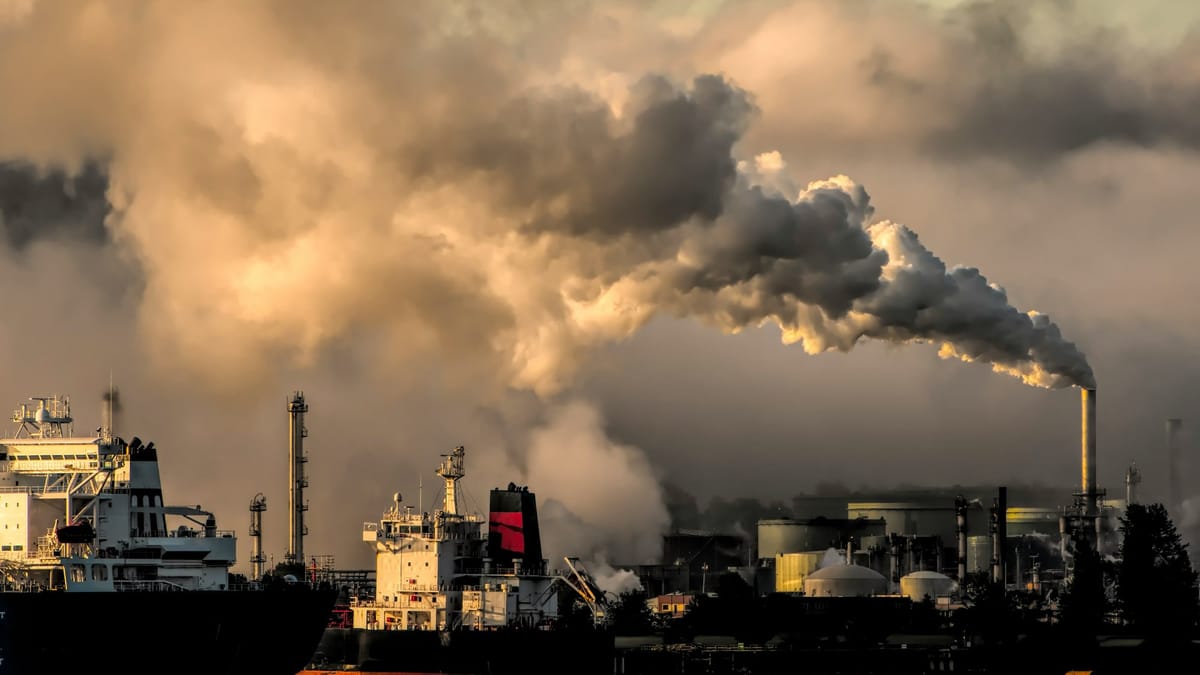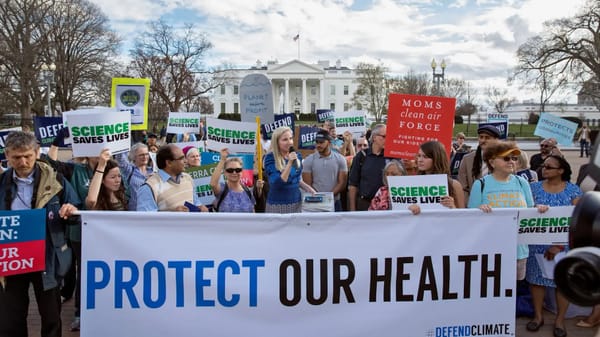Do You Think Global Warming Will Harm You Personally?
The region you live in says more about whether you worry about climate change than whether you live in a rural or urban area, a new survey says.

By Sarah Melotte | The Daily Yonder
Editor’s Note: This post is from our data newsletter, the Rural Index, headed by Sarah Melotte, the Daily Yonder’s data reporter. Subscribe to get a weekly map straight to your inbox.
If you had asked me six months ago whether I thought climate change would harm me personally, I would have responded with a hesitant “‘Yes,” an answer informed by an intellectual understanding of environmental catastrophe. I would have tried to come up with an abstract example. I’d probably garble some mess about food supply chains or drought or vulnerable infrastructure. Something vague, impersonal.
If you were to ask me the same question today, I’d tell you not to trust insurance maps, that a 1,000 year flood could, in fact, happen in your lifetime. I’d scoff at the idea of a “climate haven’”, a term coined to describe areas like Asheville, North Carolina, a city an hour south of me in the Appalachian mountains, that are unlikely to experience environmental crises.
I wasn’t even in town when Hurricane Helene flooded downtown Bakersville, North Carolina, a rural town near the Tennessee state line where I live with my partner. But the event left an imprint on my psyche. I came home from a reporting trip to an intact house with a small roof leak, and yet I close my eyes and see rising water.
If you live in a town that hasn’t burned, flooded, or dried up in recent memory, you might only give climate change a passing thought, or pay no mind to it at all. You might have never thought about it as a potentially personal phenomenon.
That’s what the Yale Climate Opinion Survey suggests. Researchers at the Yale Program on Climate Change Communication conduct an annual survey about public opinions on climate change to capture the diversity of opinions about the environment at multiple geographic scales.
Data captured through the fall of 2023 show that rural people who live in coastal states and the Southwest are more likely to answer that they think global warming will harm them personally either “a moderate amount’ or ‘a great deal.”
Take Hawaii, for example. In Hawaii a greater share of the population believes climate change will harm them compared to other Americans, which makes intuitive sense, given that the state is a small cluster of islands in the middle of the Pacific Ocean. If sea level rise is a concern anywhere, you’d think it would be here.
About 52% of Hawaiians believe that climate change will harm them personally, compared to only 39% of Americans at large.
Rural Hawaiians are slightly less likely to believe that climate change will harm them personally, but the difference is so small that it could just be statistical noise. Approximately 51% of rural Hawaiians think that climate change will harm them personally, compared to about 53% of urban and suburban Hawaiians. I’m using the Office of Management and Budget category of nonmetropolitan counties to define rural in this analysis.
At the national level, about 38% of rural Americans and 41% of metropolitan Americans think that climate change will harm them personally either a moderate amount or a great deal.
The greatest differences in climate opinion exist between different states and regions, not rural and urban counties. It’s at least one opinion not subject to the epochal rural urban divide, the great new American faultline.
Rural Alaskans and Hawaiians worry the most about climate change harming them personally compared to other rural respondents in the survey. As an aggregate, about 49% of rural Alaskans and Hawaiians say they believe they’ll be harmed (or are already being harmed) by climate change.
Only time will tell how climate opinions will shift as environmental crises become more commonplace. In the 2024 survey, will more rural North Carolinians say they think global warming will harm them, given the catastrophic flooding brought on by Hurricane Helene?
At DayMark News, we are committed to exposing the rise of authoritarianism and its threat to democracy. In a time when disinformation spreads like wildfire and democratic institutions face relentless attacks, we need your support to keep the fight alive.
Investigative journalism is our weapon against authoritarian ideologies. We delve deep to uncover the truths others would rather keep hidden, while providing actionable resources to empower individuals like you to defend our democracy.
We believe in transparency, integrity, and the power of a well-informed public. But maintaining a platform dedicated to fearless reporting and mobilization requires resources. We refuse to bow to corporate interests or compromise our mission. That's why we turn to you — our community.
Every donation, big or small, helps us continue our work. With your support, we can produce the in-depth analyses, breaking news, and educational tools needed to resist the rise of extremist movements and protect democratic values for future generations.
This fight belongs to all of us. Together, we can ensure that democracy not only survives but thrives. Please consider making a contribution today to keep DayMark News strong and independent.
Donate Now: Because Democracy Can't Defend Itself.

 Donate
Donate



